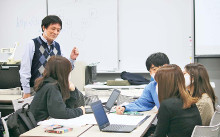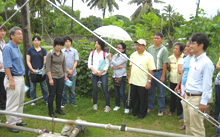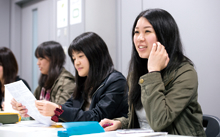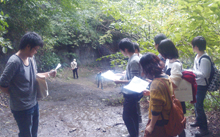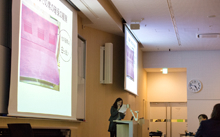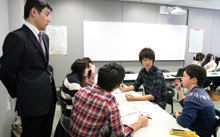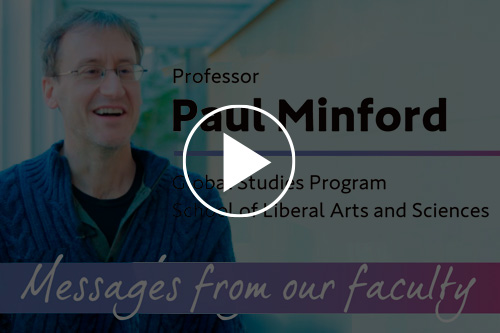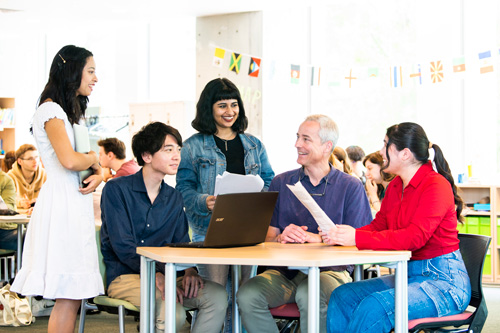Faculties
Currently, Musashi does not confer undergraduate degrees or graduate degrees in English. Courses in the three faculties and two graduate schools are predominately offered in Japanese. International students with a high level of Japanese proficiency may be eligible to take courses.
Faculty of Economics
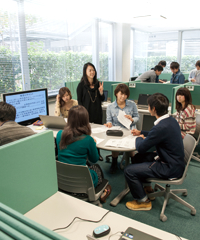
As the oldest faculty in Musashi University, the Faculty of Economics is proud of the number of its graduates who play a leading role in society. Not content with its traditions and past achievements, however, the faculty is determined to continue to grow and develop. In 1992, it established the first “Department of Finance” in Japan, pioneering the introduction of specialist training in finance and securities. Since 2011, students are free to choose from a variety of courses and seminars that extend beyond the Faculty, allowing them to pursue studies
in curriculums that incorporate other academic disciplines. Through this interdisciplinary approach, students are able to study subjects that meet their burgeoning interests after enrolment.
in curriculums that incorporate other academic disciplines. Through this interdisciplinary approach, students are able to study subjects that meet their burgeoning interests after enrolment.
Departments
- Department of Economics
- Department of Management
- Department of Finance
Faculty of Humanities
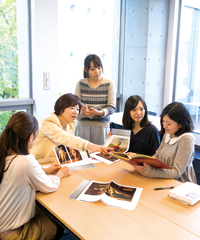
The goal of the Faculty of Humanities is to cultivate individuals who have a broad understanding of a diverse array of cultures and values; are able to articulate their ideas and explain their own culture in a foreign language; and can interact effectively with people from different cultures. To achieve this goal, we have developed a systematic study program for a variety of languages as well as enhanced Musashi University’s Overseas Study Program.
Departments
- Department of British and American Studies
- Department of European Studies
- Department of Japanese and East-Asian Studies
Faculty of Sociology

The question we are most frequently asked is, “What do sociology students study?” To which we always ask the question, “What do you want to study at university?” Replies increasingly focus on issues such as environmental problems, juvenile crime, parent-child problems, war and peace,and the mass media. Potential students often seem to be under the impression that the objects they can study at university are far removed from what they actually want to study or are interested in. “The Faculty of Sociology is where you can specialize in all kinds of social problems, including these kinds of familiar issues.” It is where students study the current state of society, explore the background to problems and learn how to analyze the intertwining causes. Our object of study is today’s society. The Faculty of Sociology deals with all kinds of social phenomena ranging from personal friendships to fashion, games and global issues. Amid the dramatically changing social conditions of the 21st century, it is impossible to predict what will happen either in the world at large or close to home. To survive such times, the Faculty of Sociology aims to use sociology’s theoretical and empirical methods to train people to tackle the problems of modern society head-on and create a new era.
Departments
- Department of Sociology
- Department of Socio-Media Studies
School of Liberal Arts and Sciences
The School of Liberal Arts and Sciences consists of two programs; Economic and Management (EM) Program and Global Studies (GS) Program. Please click on the bold text below to go to the Japanese page, then use your browser's translation function to view it in various languages.
- Information about entrance exams for students studying the International Baccalaureate can be found below
- For scholarship information about Parallel Degree Programme (PDP), please see the following website
- For scholarship information about GS program, please see the following website
-
Messages from Faculty -
Economics and Management Program -
Global Studies Program

